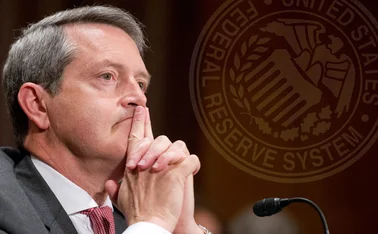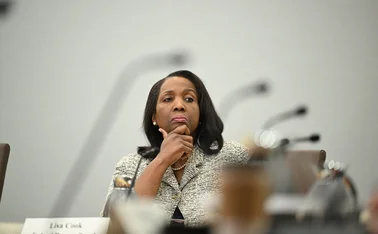
Podcast: Iceland removes gender bias from wages

The Central Bank of Iceland has managed to remove gender biases from the equation when calculating its wage structure.
On January 11, the central bank received formal equal pay certification in recognition of how it sets pay for its employees throughout the organisation.
The certification was in response to a government amendment passed in 2017, demanding that institutions with 250 or more people implement a fair pay structure before the end of this year.
“The central bank has to legally fulfil this requirement but not until the end of the year so they have been quick off the mark, which is good,” Katrín Ólafsdóttir, a member of the central bank’s monetary policy committee, says during CB On Air’s latest Womenomics podcast.
“They want to be known as an equal wage employer. They have had, not a bad reputation, but they could improve on their reputation in terms of gender equality, so I think this is a good step.”
The central bank has always had a good gender split among its employees, with an equal 50:50 ratio of men to women in 2017. But the central bank has struggled, like its peers, to progress women through the ranks.
In 2018, the central bank appointed its first female deputy governor, Rannveig Sigurdardóttir.
With a background in academic economics, having served as deputy chief economist and deputy director of the central bank’s economics and monetary policy department, Ólafsdóttir thinks Sigurdardóttir’s appointment will help improve the ratio of women in senior roles.
“We are moving little by little. [Sigurdardóttir’s] appointment is an important step in the right direction,” she said.
Since 2009, Iceland has topped the World Economic Forum’s Global Gender Gap rankings. According to the survey, Iceland is the country closest to achieving gender equality in society and economy.
Index
00:00 Introduction
01:25 Workforce demographic
04:00 Analysing the pay gap
07:10 Image adjustment
10:30 The gender puzzle
13:00 Gender-specific policies
15:50 Making macro more attractive
To hear the full interview, listen in the player above, or download. CB On Air is also available via iTunes or podcast apps and from Google Podcasts (Android only).
Only users who have a paid subscription or are part of a corporate subscription are able to print or copy content.
To access these options, along with all other subscription benefits, please contact info@centralbanking.com or view our subscription options here: www.centralbanking.com/subscriptions
You are currently unable to print this content. Please contact info@centralbanking.com to find out more.
You are currently unable to copy this content. Please contact info@centralbanking.com to find out more.
Copyright Infopro Digital Limited. All rights reserved.
As outlined in our terms and conditions, https://www.infopro-digital.com/terms-and-conditions/subscriptions/ (point 2.4), printing is limited to a single copy.
If you would like to purchase additional rights please email info@centralbanking.com
Copyright Infopro Digital Limited. All rights reserved.
You may share this content using our article tools. As outlined in our terms and conditions, https://www.infopro-digital.com/terms-and-conditions/subscriptions/ (clause 2.4), an Authorised User may only make one copy of the materials for their own personal use. You must also comply with the restrictions in clause 2.5.
If you would like to purchase additional rights please email info@centralbanking.com







